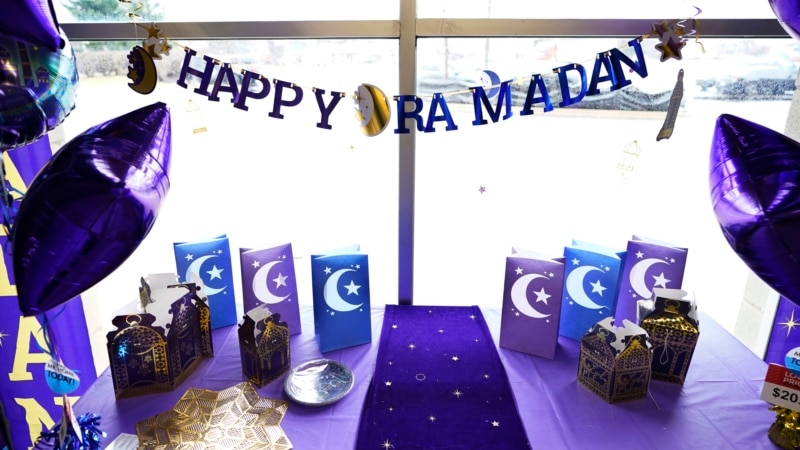A new survey shows that nearly 70% of Muslims in the United States give zakat, or practice almsgiving, during Ramadan, the Muslim month of fasting.
The survey, conducted by the Muslim Philanthropy Initiative at Indiana University, found that gender, age, race, income, marital status, religiosity and voter registration status were the factors that influenced Muslim Americans’ preferences for paying zakat during Ramadan.
“The importance of Ramadan to Muslims has long been discussed,” said Shariq Siddiqui, the lead researcher of the study and director of the Muslim Philanthropy Initiative at Indiana University.
He told VOA in an email that the survey indicates the importance of Ramadan for U.S. Muslims “when it comes to their charitable giving.”
While there is no specific requirement to pay zakat during Ramadan, many Muslims prefer to fulfill their obligation during the month as they believe that God will multiply the rewards for charity during the Muslim holy month of fasting.
Muslims believe that God revealed the Quran to Prophet Muhammad during Ramadan.
During the month, Muslims who have reached puberty and are physically capable fast from sunrise to sunset, which means abstaining from food and drink.
The survey also indicated that more than 45% of U.S. Muslims were giving zakat during the time of Hajj, the annual Islamic pilgrimage to Mecca.
Zakat is aimed at redistributing wealth and alleviating poverty within the Muslim community.
It is calculated usually at 2.5% of a Muslim’s accumulated wealth annually, including savings, investments, gold, silver and other assets beyond one’s basic needs.
According to the Muslim Philanthropy Initiative, Muslims in the U.S. paid an estimated $1.8 billion in zakat in 2021.
Nearly 3.5 million Muslims live in the U.S., which is 1.1% of the population in the nation.
Siddiqui told VOA that Muslim Americans give an estimated $4.3 billion in charity, including zakat, every year, and 85% of the money stays in the U.S., of which 50% goes to Muslim-led organizations and about 40% to non-Muslim groups.
He said, however, that the survey identifies some key demographics often overlooked by fundraisers.
According to the survey, married Muslims and Muslim women are more likely to pay zakat during Ramadan.
Muslims in their 30s and those with an annual income of $50,000 to $75,000 are leaning toward giving zakat during the month of fasting, the survey stated.
Religiosity was another factor influencing their decision to give zakat during Ramadan. Those who identified themselves as more religious tended to fulfill their zakat obligations during the month of Ramadan.
The survey also indicated that Muslim Americans who were registered to vote, compared to those who were not registered, were more likely to pay their zakat during the holy month.
Sponsored by Islamic Relief USA, the survey was based on a nationally representative sample of 1,139 U.S.-based Muslim adults across the U.S.
VOA’s Masood Farivar contributed to this story.

